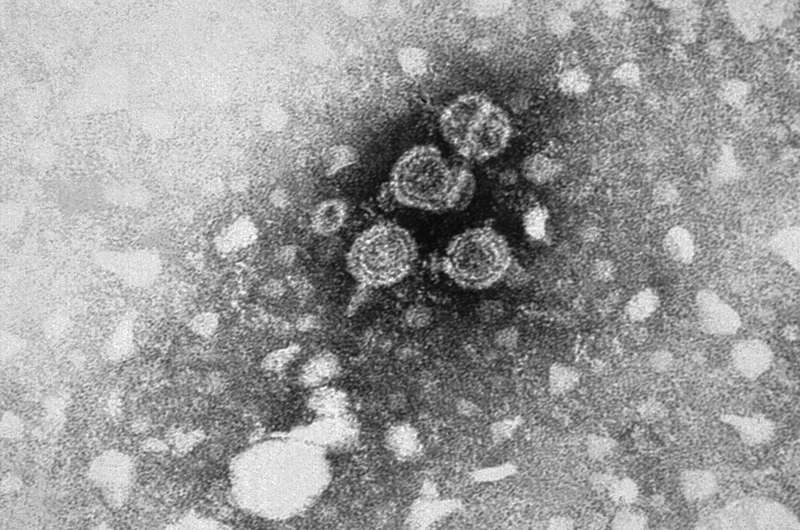A microscopic image of the Hepatitis B virus, taken by the Centers for Disease Control and Prevention
Experts at the second World Hepatitis Summit Friday called for improved preventative measures and treatment for 52 million children suffering from the disease, on the final day of the three-day event in Sao Paulo.
Of 325 million confirmed patients worldwide, 52 million are minors—a number far higher than the 2.1 million children suffering from AIDS, according to figures provided at the summit.
"Most infected infants and children are not diagnosed, prioritized or treated effectively," Raquel Peck, CEO of World Hepatitis Alliance (WHA), said in a statement.
Hepatitis is an inflammation of the liver caused by a virus. There are five types, but B and C are responsible for more than half of all new cases of liver cancer, according to the World Health Organization.
Often transmitted from mothers, 48 million children have type B. But experts drew attention to increased diagnoses of hepatitis C, for which no vaccine exists—and expressed concerns about the lack of preventative measures.
Data released at the summit indicated 84 percent of countries offer hepatitis B vaccines—but only 39 percent provide the necessary dose at birth.
"Enough is enough. Governments and global health organizations must ensure all children are vaccinated for hepatitis B and provided with DAAs (direct-acting antivirals) for hepatitis C, and that all pregnant women are screened," said Charles Gore, President of the World Hepatitis Alliance.
Last year, 194 countries pledged to take steps to eradicate hepatitis—a liver inflammation which kills 1.3 million people each year—by 2030. However, only nine are now honoring that commitment, according to figures released Wednesday.
© 2017 AFP




















